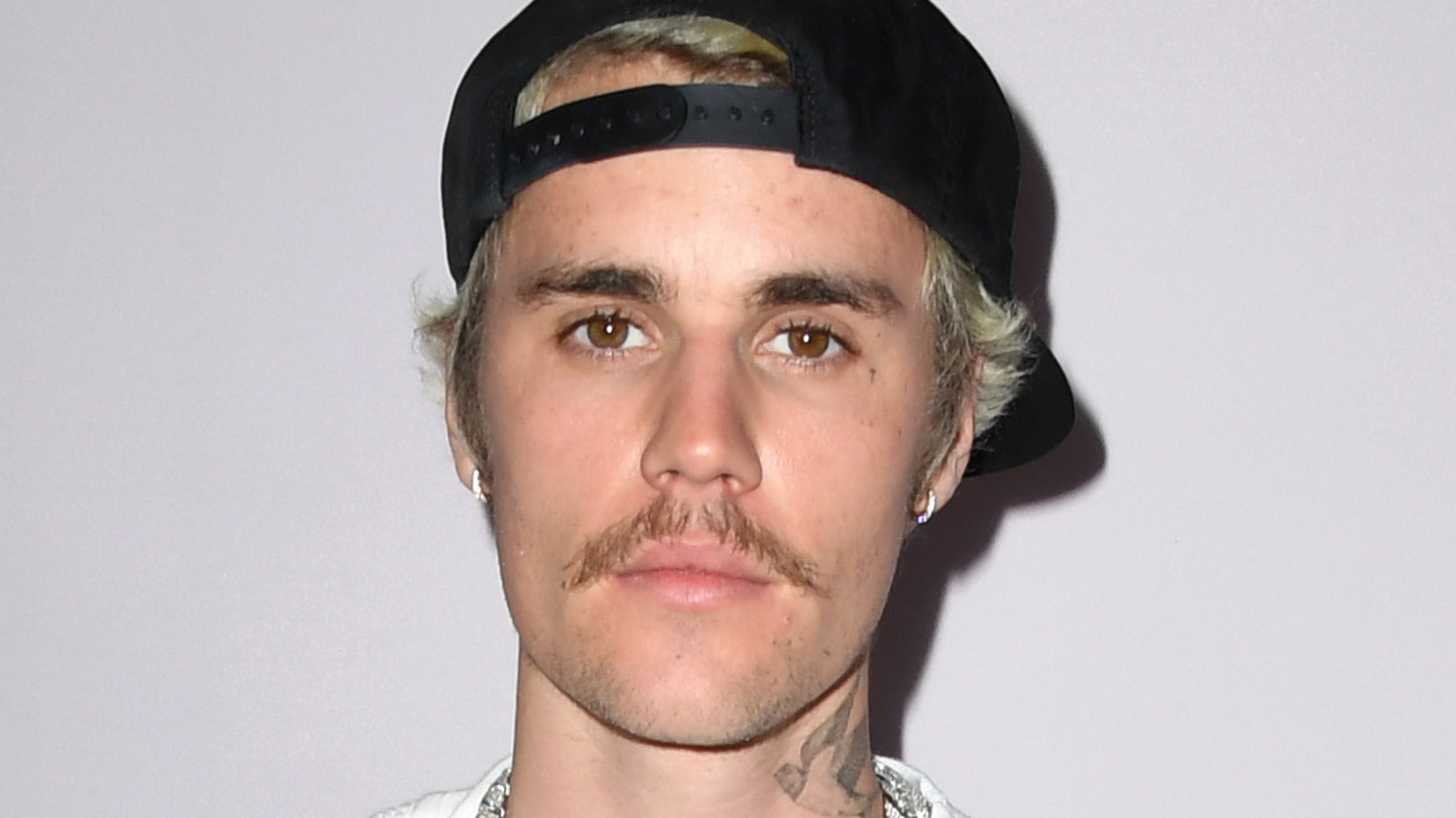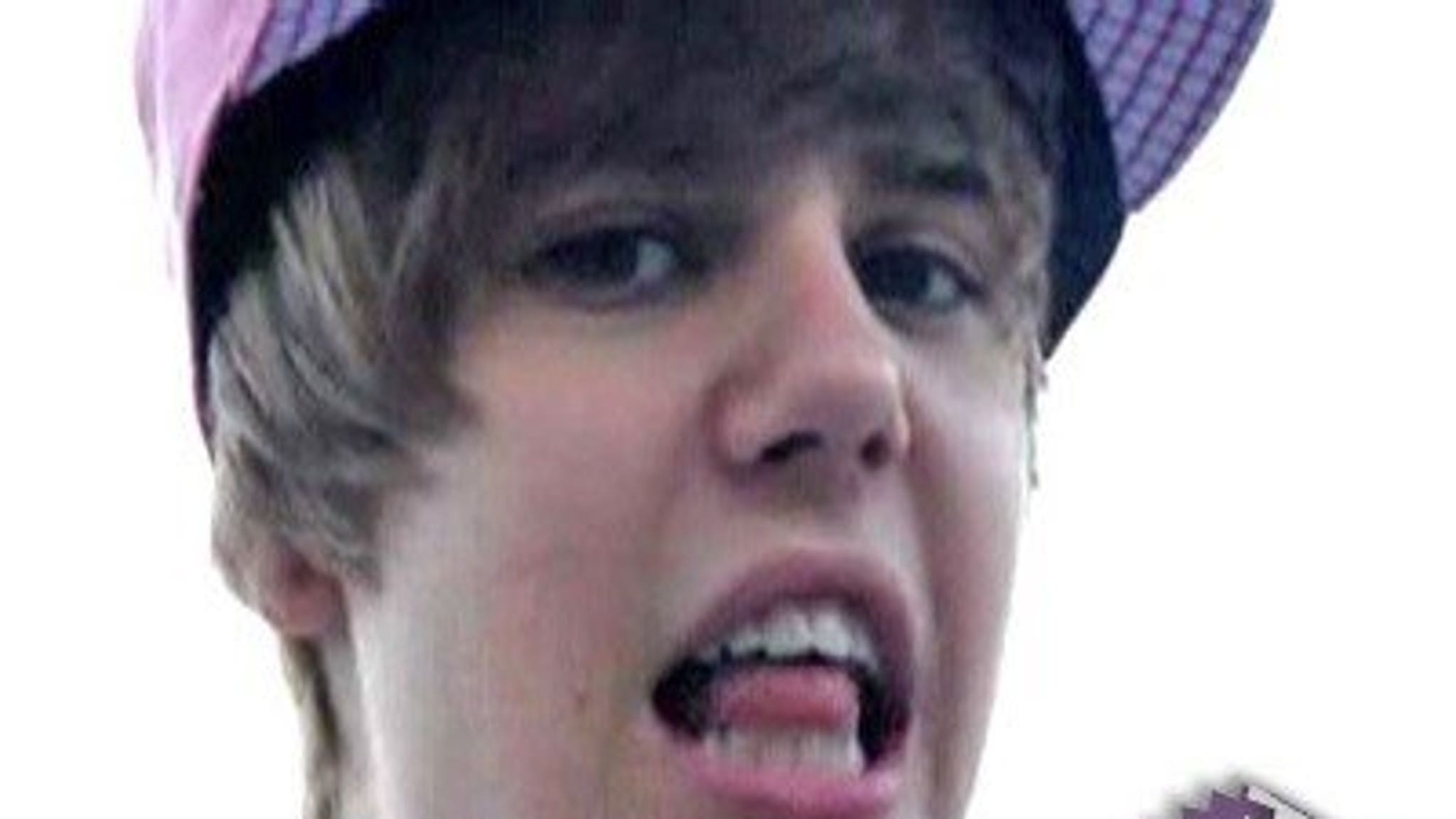The internet, you know, can be a wild place, and sometimes, news, or what seems like news, travels faster than light. Lately, there's been quite a bit of chatter, a sort of hushed question making the rounds online: "Did Justin Bieber die?" It's a shocking thought, to be sure, and it’s almost enough to make anyone pause and wonder what on earth is going on. For fans and casual observers alike, this kind of talk can be pretty unsettling, and it’s important, really, to get to the bottom of things when such serious claims surface.
This kind of rumor, actually, isn't new in the world of public figures. It seems like every so often, a story pops up, suggesting that someone famous has, well, passed away, only for it to turn out to be completely untrue. These stories, in a way, spread like wildfire, often leaving a trail of confusion and worry in their wake. It’s a very curious phenomenon, how quickly something so baseless can take hold and make people genuinely question what's real and what's just noise.
So, let's just clear the air right away, shall we? The short and simple answer to the question "Did Justin Bieber die?" is a resounding no. He is, in fact, alive and well. This particular rumor, like so many others, appears to be entirely unfounded, a product of the internet's sometimes strange and unpredictable flow of information. It's a good reminder, perhaps, that not everything we read or hear online holds true, and that a little bit of critical thinking goes a very long way.
- Meidas Brothers Net Worth.https
- Tony Hinchcliffe Father.https
- Landon Southern Charm.https
- Cathy White.https
- Joaquim Valente Height.https
Table of Contents
- Who is Justin Bieber - A Brief Look at His Journey
- Did Justin Bieber Die - What's Behind the Rumors?
- Untangling the 'did justin bieber die' chatter
- Why Do We See So Many 'Versions' of the Truth?
- Is Misinformation Like a 'Split' Reality?
- The 'did justin bieber die' myth and its many faces
- How Can We Spot These 'Alternate' Narratives'?
- What Happens When Facts Get 'Split'?
- Understanding the 'Did' in Public Perception
Who is Justin Bieber - A Brief Look at His Journey
Justin Bieber, as a matter of fact, rose to fame at a remarkably young age, becoming a global pop sensation before he was even old enough to drive. Born in Stratford, Ontario, Canada, his musical talents were first spotted on YouTube, where his mother had posted videos of him singing cover songs. It was a pretty humble beginning for someone who would very soon become a household name around the world. His early career, you know, was marked by catchy pop tunes and a youthful charm that captivated millions of fans, especially younger audiences.
His first full-length album, "My World 2.0," came out in 2010, and it really launched him into superstardom. Songs like "Baby" became massive hits, and he quickly garnered a devoted following known as "Beliebers." For a while, he was, quite literally, everywhere. Concerts sold out in minutes, his songs topped the music charts, and his face was plastered on magazines and merchandise across the globe. It was a very intense period of fame, one that few people ever get to experience, especially so early in life.
Over the years, Justin Bieber's career has, in some respects, evolved quite a bit. He's explored different musical styles, released more mature albums, and has, you know, continued to be a significant figure in the music industry. He's also, apparently, faced his share of personal challenges and public scrutiny, which is something many celebrities deal with. Through it all, he has, more or less, remained a prominent artist, continuously putting out new music and engaging with his fan base. His story is, arguably, a testament to enduring fame in the modern era.
- Big Meech Net Worth.https
- Richard Thomas Accident Update.https
- Emily Compagno Husband.https
- Filmyfly Filmy
- Money6xcom.https
Personal Details and Bio Data
| Full Name | Justin Drew Bieber |
| Date of Birth | March 1, 1994 |
| Birthplace | London, Ontario, Canada |
| Nationality | Canadian |
| Occupation | Singer, Songwriter |
| Genre | Pop, R&B |
| Years Active | 2007–present |
| Spouse | Hailey Baldwin Bieber |
Did Justin Bieber Die - What's Behind the Rumors?
So, how exactly do these kinds of death rumors, like the one asking "did Justin Bieber die," even start? It's a pretty fascinating, if sometimes troubling, question. Often, it begins with a single, unverified post on social media, maybe a fake news article, or even just a misunderstanding that gets twisted as it spreads. Someone might, for example, misread a headline, or a parody account might create something humorous that then gets taken seriously by others. The sheer speed at which information, or misinformation, can travel across platforms like Twitter, Facebook, and TikTok means that a small spark can quickly become a roaring fire of false claims.
These rumors, you know, often thrive on a mix of curiosity, sensationalism, and the human tendency to share things quickly without always checking the facts. When a famous person is involved, the level of interest is, naturally, much higher, which just gives these stories more fuel. It's almost as if people are looking for something shocking or unexpected, and a death rumor certainly fits that bill. The emotional impact of such a claim can also make people more likely to share it, thinking they're passing along important news, even if it hasn't been confirmed by any reliable sources.
Sometimes, too, these rumors are, you know, intentionally created as hoaxes or for malicious purposes, like generating clicks or causing distress. There are people out there who find a strange kind of enjoyment in stirring up trouble online, and targeting a well-known figure like Justin Bieber is, apparently, an easy way to get a lot of attention. Regardless of the origin, the end result is the same: a wave of false information that can be quite unsettling for a lot of people who genuinely care about the person involved. It's a situation where the truth gets a bit lost in the noise, really.
Untangling the 'did justin bieber die' chatter
When you hear chatter like "did Justin Bieber die," it's worth taking a moment to consider the source. Is it coming from a reputable news outlet, or is it just a random post from someone you don't know on a social media feed? Often, these rumors, you know, pop up on less credible platforms, or they're shared by accounts that aren't verified. It's a bit like trying to find your way through a maze where every path looks the same, but only a few lead to the actual truth. The sheer volume of content online makes it, you know, particularly challenging to discern what's real from what's made up, and that's where these kinds of rumors really take hold.
The speed of sharing also plays a big part. People, naturally, tend to hit the "share" button without, perhaps, pausing to think if the information is accurate. This means that a false claim can, in a way, spread globally in minutes, long before any official debunking can even begin. It's a race against time, basically, for the truth to catch up with the lie. The 'did Justin Bieber die' rumor, for instance, probably made its rounds countless times before anyone could properly confirm that it was completely false. This rapid dissemination creates a sort of echo chamber where the false narrative gets repeated over and over, making it seem more legitimate than it actually is.
To really untangle this kind of chatter, it helps to look for official statements. Has Justin Bieber himself, or his representatives, said anything? Have major news organizations, the ones you usually trust, reported on it? If not, then it's, more or less, safe to assume it's just a rumor. It’s about, you know, seeking out the most reliable points of information, which can sometimes be a little harder than it sounds in the very busy online space. This careful approach is, frankly, the best way to separate fact from the kind of fiction that makes people ask "did Justin Bieber die" in the first place.
Why Do We See So Many 'Versions' of the Truth?
It's interesting, isn't it, how a single event or piece of information can seem to have so many different "versions" or "interpretations" floating around? Sometimes, it feels like news itself has different "states" or "versions" floating around, especially when a big rumor, like "did Justin Bieber die," pops up. This can be a bit confusing, because you're trying to figure out which one is the real story. It's almost as if the truth gets pulled in several directions, creating these distinct narratives that can, in a way, make it hard to get a clear picture of what's actually happening. This phenomenon isn't just about celebrity gossip; it applies to many complex topics, too.
You know, people can sometimes "detach" from the truth when they're faced with a lot of confusing or shocking information, making it hard to see what's real. This isn't to say anyone is literally experiencing a serious condition, but rather that the way we process and share information can lead to a kind of mental separation from the verified facts. A big, stressful event, like a shocking rumor, can suddenly trigger a lot of different stories and interpretations, making it tough to figure out what's actually going on. This is where the concept of "identity and reality disruption" comes into play, not in a clinical sense, but in how our perception of a situation can get twisted and turned.
Think of how a story, like the "did Justin Bieber die" one, can have two or more really distinct versions, almost like different "identities" of the same news, and each one tries to take control of what people believe. One version says he's fine, another says he's not, and these different narratives can, you know, exist side-by-side, each with its own set of "evidence" or supporters. It's a bit like how some conditions face a lot of misunderstanding; these big rumors also carry a lot of false ideas, and it's good to clear them up. The way information is presented, or mispresented, can truly create these separate "realities" for different groups of people, and that's a pretty powerful thing.
Is Misinformation Like a 'Split' Reality?
When a big rumor spreads, it can really mess with our sense of what's real, causing a kind of "reality disruption" where facts get twisted, and you see two or more very different accounts. This is where the idea of misinformation being like a "split" reality comes into play. It's not about a person having multiple identities, but about how a single event or piece of news can be perceived in wildly different ways by different groups of people, creating these separate 'worlds' of understanding. For instance, the 'did Justin Bieber die' story creates one reality where he's gone, and another where he's still living, and these two realities exist simultaneously for different people online, which is, you know, quite a thing to consider.
It's almost as if a rumor can grow "multiple identities" that seem to live on their own, each one telling a slightly different story about something like "did Justin Bieber die," and they all work separately. One "identity" of the rumor might stem from a social media post, another from a clickbait article, and a third from a chain message. Each of these "identities" has its own life, its own set of details, and its own audience, which makes it very hard to get a unified picture. This fragmentation of truth is, frankly, a significant challenge in our current information landscape, making it tougher for people to agree on what the basic facts are, which is a bit concerning, really.
The most noticeable thing about big rumors is how the truth itself seems to get "split" into at least two very distinct versions, almost like different parts of a story, without anyone really meaning for it to happen. One part might focus on a celebrity's past health issues, while another might just be pure fabrication. These different parts, you know, contribute to the overall confusion, making it difficult for people to piece together the whole picture. The 'did Justin Bieber die' myth, for instance, likely has many faces, each a slight variation on the false claim, and each contributing to the overall sense of a "split" reality where different versions of the story compete for attention.
The 'did justin bieber die' myth and its many faces
The "did Justin Bieber die" myth, like many widespread rumors, doesn't just have one simple form; it often appears with many faces, each slightly altered or embellished. Sometimes, you know, it might be a vague tweet, other times it could be a more elaborate fake news article with fabricated quotes and dates. These different versions are, in a way, like separate narratives that take control of how people talk and act at different moments, shaping what they think is true. It’s not just one single lie, but a collection of interconnected false stories that all point to the same untrue conclusion, making it very hard to pinpoint a single origin.
Each "face" of the myth, apparently, preys on different aspects of public curiosity or concern. One version might imply a sudden accident, while another might suggest a health crisis. These varied approaches mean the rumor can reach a wider audience, as different angles might appeal to different people. Experts might describe how these rumors create separate "identities" for the same event, and these identities actually work on their own, shaping public opinion. It's a pretty effective, though harmful, way for misinformation to spread, because it constantly adapts and finds new ways to present itself, making it seem, you know, more believable to some.
You might think of these big rumors as creating a kind of "split reality" or "multiple versions" of the truth, and there are ways to spot when this is happening. The "did Justin Bieber die" myth, for instance, might appear on a shady website one day, then be rephrased on a social media forum the next, and then pop up in a viral video. Each instance adds another "face" to the myth, making it more pervasive and harder to completely eradicate. It's a good reminder that misinformation, like some conditions, is often misunderstood, but things are starting to change as people learn how to spot it. Recognizing these multiple faces is, frankly, the first step in seeing through the illusion.
How Can We Spot These 'Alternate' Narratives?
So, with all these different versions of stories floating around, how can we, you know, actually spot these "alternate" narratives and figure out what's real? One good way is to always consider the source. Is it a well-known, respected news organization with a history of accurate reporting, or is it a website you've never heard of that looks a bit sketchy? If the source isn't immediately obvious or seems questionable, that's, basically, a big red flag. It’s about developing a habit of asking questions before you accept something as fact, which is, you know, a pretty valuable skill in today's world.
Another helpful tip is to look for confirmation from multiple, independent sources. If only one place is reporting that "did Justin Bieber die," and no major news outlets are picking it up, then it's highly likely to be false. Real news, you know, tends to be reported by many different reputable organizations fairly quickly. If you can't find corroborating evidence from places you trust, then it's probably just a rumor. This cross-referencing is, in a way, like building a strong foundation for your understanding; the more reliable pillars you have, the more stable your knowledge will be, which is very important.
Also, pay attention to the tone and language used in the story. Is it overly sensational, designed to shock you, or does it sound calm and factual? Stories that use very emotional language, or that demand immediate sharing, are often less reliable. It's like how some conditions face a lot of misunderstanding; these big rumors also carry a lot of false ideas, and it's good to clear them up. Learning to recognize these common traits of misinformation can, you know, really help you identify when a story is trying to present an "alternate" version of the truth, rather than just the plain facts. It's a skill that gets better with practice, too.
What Happens When Facts Get 'Split'?
When facts get "split" into these different versions, the consequences can be, you know, pretty significant. For one thing, it creates confusion and distrust. If people can't agree on basic facts, it becomes much harder to have meaningful discussions or make informed decisions. This kind of "identity and reality disruption," applied to information, can lead to a fragmented public discourse where everyone is operating on a different set of "truths." It's a bit like trying to solve a puzzle when everyone has different pieces, which is, frankly, quite frustrating and unproductive.
Moreover, these split facts can damage reputations. When a false rumor like "did Justin Bieber die" spreads, it can cause distress to the person involved and their loved ones. Even after the rumor is debunked, some people might still hold onto that initial false impression, which is, you know, pretty unfair.
- Kyla Wayans.https
- Did Will Smith Die.https
- Mckinley Richardson Onlyfans.https
- Bollyflix Net
- Yumi Eto.https


